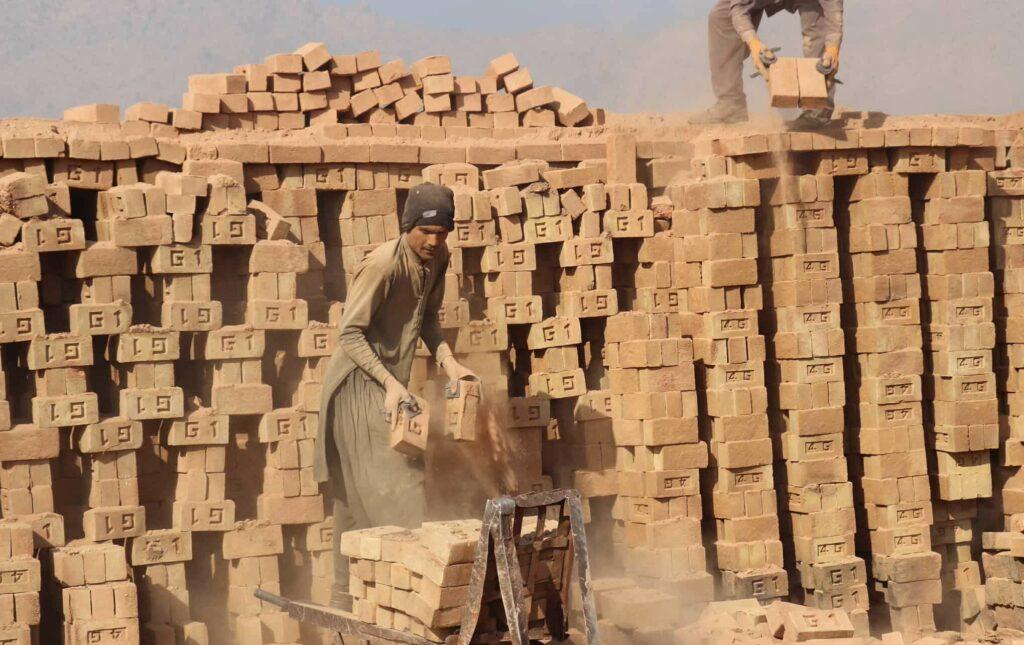JALALABAD (Pajhwok): The Labour and Social Affairs Department of Nangarhar says 6,000 people are working in brick kilns, half of them children and teenagers in the Surkh Rod district of the eastern province.
However, the department says, it is making efforts to save children from hard labour in Jalalabad, the provincial capital, and different districts.
Most of children are engaged in hard labour in Jalalabad, Torkham town and Surkh Rod, but the officials concerned assure they have initiated programmes for saving them from heavy work.
Family members say their children are doing hard labour due to poverty. About 48 brick kilns are functioning in Surkh Rod, employing 6,000 people — half of them children and teenagers.
Some girl children are also working in these brick kilns. One of them, Salma, 10, makes clay bricks with her small hands in the harsh winter.
Khan Mohammad, Salma’s father, is suffering from bone rheumatism and cannot work with his crippled hands and feet.
He said if a small business was set up for him, he would never send his little daughter to work.
In some parts of Jalalabad, children are engaged as trainees with auto mechanics, carpenters and tinsmith, besides doing other forms of hard labour due to economic hardships.
Inamullah, less than 10 years old, said his elderly father was unable to meet family needs, so he is forced into hard labour.
Meanwhile, Labour and Social Affairs Department officials acknowledged a large number of children were working in brick kilns in the province.
Faridoon Haqqani, director of the department, said they had provided education for hundreds of children in cooperation with charities and aid agencies in Torkham.
The official said families of such children were being financially supported to stop them sending their children to work.
He added they had also arranged for children and teenagers vocational training courses in Jalalabad in order to save them from hard labour.
The director explained his department had conducted a survey on brick kilns in Surkh Rod district. Around 5,879 people are working in 48 kilns there, 50 percent of them children and teenagers.
He said they were in discussion with charitable organisations to provide such children with education and the families with financial support.
kk/mud








GET IN TOUCH
NEWSLETTER
SUGGEST A STORY
PAJHWOK MOBILE APP